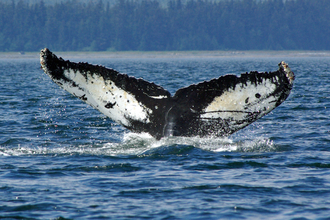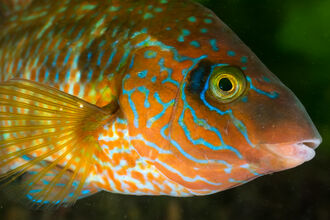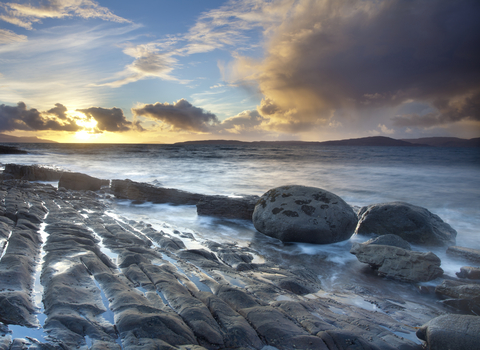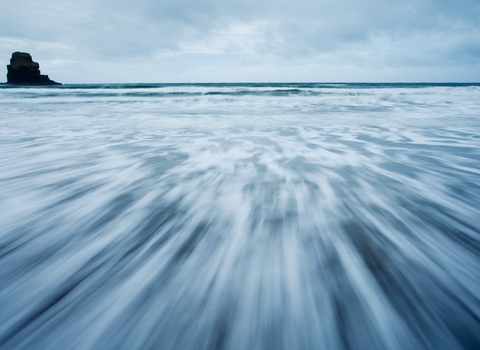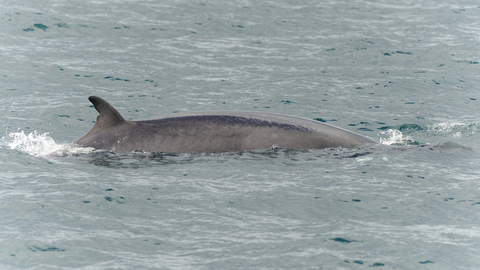
Minke whale ©Amy Lewis
Minke whale
Scientific name: Balaenoptera acutorostrata
The UK's smallest whale, the minke whale, is notoriously inquisitive around boats and is even known to breach clear of the water. Beware though - their fragrant breath has given them the nickname Stinky Minkes!
Species information
Category
Statistics
Length: 7-9m Weight: 5-10 tons Lifespan: 40-50 yearsConservation status
Considered of Least Concern on the IUCN Red List of species and a Priority Species under the UK Post-2010 Biodiversity Framework.
When to see
January to DecemberAbout
The Northern minke whale, most often referred to as the minke whale in the UK, is found throughout the oceans of the Northern Hemisphere. They are markedly smaller than the other baleen whales found in UK seas, though it is sometimes difficult to judge size at sea! Minke whales are generally spotted alone or in small feeding groups feasting on schools of fish or krill. They are what is known as a "gulp feeder", meaning they take a huge gulp of fish and push the seawater out through the baleen plates that line their mouths. You can sometimes spot minke whales lunge feeding into a school of fish near the surface.How to identify
A small streamlined rorqual whale reaching an adult length of 7-9m. Minke whales have a sleek, dark grey body and a tall sickle shaped fin that curves backwards. Look out for the distinctive white "armbands" on the pectoral fins (front flippers). Their blow is weak or invisible.Distribution
Can be spotted in near-shore waters around the UK, though rare in the Southern North Sea and English Channel.Habitats
Did you know?
Minke whale vocalisations can be as loud as 150 decibels - that’s the same as a jet plane taking off! This allows them to communicate over long distances underwater.How people can help
Report your minke whale sightings to your local Wildlife Trust. If you spot a minke whale whilst at sea, maintain a distance of at least 100m. If the whale approaches you, maintain a constant speed and allow them to interact on their own terms and leave at will. If you find a stranded whale (dead or alive), please report it to the relevant authority. The Wildlife Trusts are working with Government to improve fishing practices and eliminate marine pollution. You can support our work by joining your local Wildlife Trust, helping at a local beach clean and choosing sustainably sourced fish.

